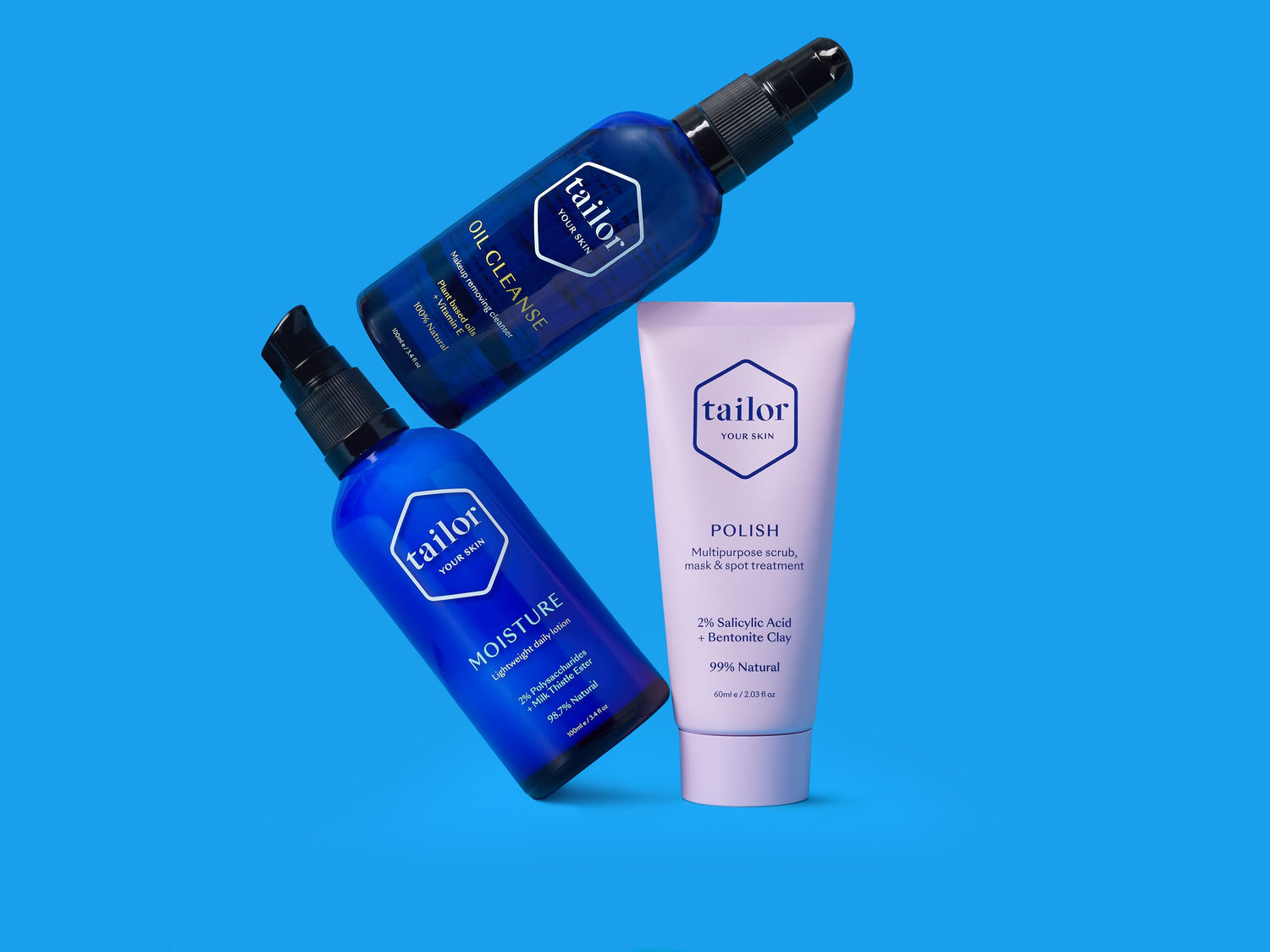Is hyaluronic acid worth the hype? In one word - yes.
Chances are you’ve heard about Hyaluronic acid. You would’ve heard about its hydrating superpowers, turning dry, rough skin into soft, supple complexions. You might also have some questions - what, how and why does it work? Most importantly - will it work for my skin?
What is Hyaluronic acid?
Hyaluronic acid (HA) is naturally occurring in your body. Around half of this HA is found in your skin, where it binds to water to retain hydration. Your body produces less HA as you get older, which can result in skin ageing, dryness and reduced elasticity. Adding it into your skincare routine helps counteract this process.

Hyaluronic acid for dry or dehydrated skin
HA is a humectant, something that preserves moisture. In fact, it’s the most natural hydrophilic (water loving) molecule. It can hold up to 1000x its weight in water - insane right? This is why we knew we had to add it to Hydrate!
High molecular weight HA (more on this below) creates a protective barrier on your skin, to both draw in and hang on to water. This is what makes it amazing for oily skin - which might not be dry but can be dehydrated - as HA provides deep hydration without adding additional oils to the skin.

Hyaluronic acid anti-ageing benefits
As mentioned, HA can hold up to 1000x its weight in water. It delivers intense hydration to the surface layers, smoothing and plumping your skin. Since dehydrated skin is one of the main causes of wrinkles, this hydrating boost is key to reducing the appearance of any fine lines.
High vs low molecular weight Hyaluronic acid
Low molecular weight HA (LMW-HA) is more commonly used in skincare as it’s smaller size means it can better penetrate the skin (although it’s debated whether or not HA can even be formulated small enough to truly penetrate the dermis). While this sounds ideal, LMW-HA comes with it’s baggage, namely its inflammatory traits and ability to cause scarring. On the other hand, high molecular weight HA (HMW-HA) is anti-inflammatory, and encourages healing.

Hyaluronic, are there acid side effects?
To be honest, there aren’t really any side effects of topical HA. As it’s naturally occurring in your body, most people find they can use it without any irritation. In Hydrate, we opted for 2% HMW-HA for it’s anti-inflammatory and protection benefits. We partnered it with niacinamide (vitamin B3) to decrease redness, strengthen the skin's barrier and lock in hydration. We also added NZ botanical Kowhai extract to soothe dry, inflamed skin for the ultimate hydrating and soothing gel.
Are you ready to meet your hydration hero? Shop Hydrate now!
References:
Litwiniuk M, Krejner A, Speyrer MS, Gauto AR, Grzela T. Hyaluronic Acid in Inflammation and Tissue Regeneration. Wounds. 2016;28(3):78-88.
Papakonstantinou, Eleni et al. “Hyaluronic acid: A key molecule in skin aging.” Dermato-endocrinology vol. 4,3 (2012): 253-8. doi:10.4161/derm.21923
Draelos ZD. A clinical evaluation of the comparable efficacy of hyaluronic acid-based foam and ceramide-containing emulsion cream in the treatment of mild-to-moderate atopic dermatitis. J Cosmet Dermatol. 2011;10(3):185-188. doi:10.1111/j.1473-2165.2011.00568.x
Pavicic T, Gauglitz GG, Lersch P, et al. Efficacy of cream-based novel formulations of hyaluronic acid of different molecular weights in anti-wrinkle treatment. J Drugs Dermatol. 2011;10(9):990-1000.
Essendoubi M et al. (2016) Human skin penetration of hyaluronic acid of different molecular weights as probed by Raman spectroscopy. Skin res technol. 22(1):55-62.
Ruppert, S M et al. “Tissue integrity signals communicated by high-molecular weight hyaluronan and the resolution of inflammation.” Immunologic research vol. 58,2-3 (2014): 186-92. doi:10.1007/s12026-014-8495-2

